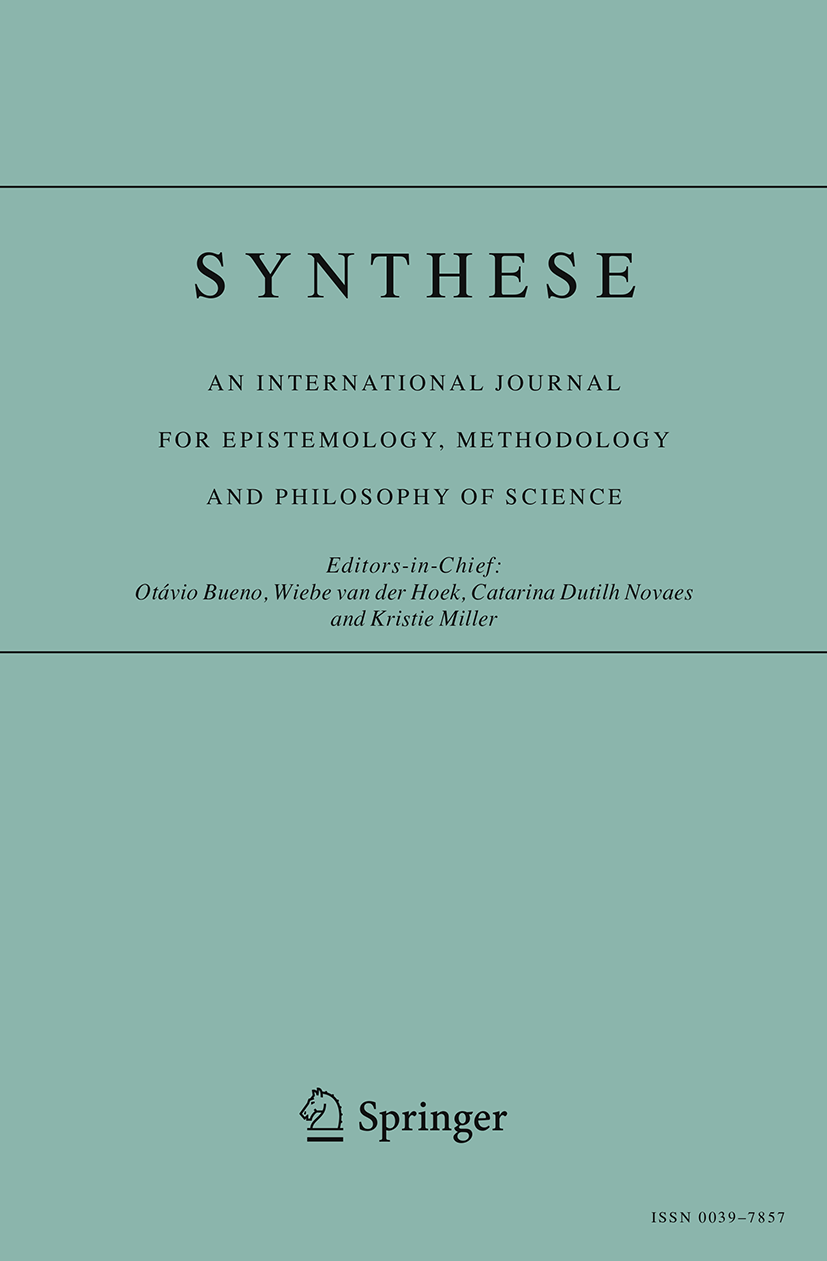link.springer.com/article/10.1007/s11229-016-1108-y
Preview meta tags from the link.springer.com website.
Linked Hostnames
31- 100 links tolink.springer.com
- 47 links toscholar.google.com
- 9 links towww.springernature.com
- 5 links todoi.org
- 2 links tocitation-needed.springer.com
- 2 links tosupport.springernature.com
- 2 links towww.ncbi.nlm.nih.gov
- 1 link toauthorservices.springernature.com
Thumbnail

Search Engine Appearance
https://link.springer.com/article/10.1007/s11229-016-1108-y
Cultural neuroscience and the category of race: the case of the other-race effect - Synthese
The use of the category of race in science (in relation to humans) remains controversial. During the last few years there has been a lively debate on this
Bing
Cultural neuroscience and the category of race: the case of the other-race effect - Synthese
https://link.springer.com/article/10.1007/s11229-016-1108-y
The use of the category of race in science (in relation to humans) remains controversial. During the last few years there has been a lively debate on this
DuckDuckGo
Cultural neuroscience and the category of race: the case of the other-race effect - Synthese
The use of the category of race in science (in relation to humans) remains controversial. During the last few years there has been a lively debate on this
General Meta Tags
140- titleCultural neuroscience and the category of race: the case of the other-race effect | Synthese
- charsetUTF-8
- X-UA-CompatibleIE=edge
- applicable-devicepc,mobile
- viewportwidth=device-width, initial-scale=1
Open Graph Meta Tags
6- og:urlhttps://link.springer.com/article/10.1007/s11229-016-1108-y
- og:typearticle
- og:site_nameSpringerLink
- og:titleCultural neuroscience and the category of race: the case of the other-race effect - Synthese
- og:descriptionThe use of the category of race in science (in relation to humans) remains controversial. During the last few years there has been a lively debate on this topic in the field of a relatively young neuroscience discipline called cultural neuroscience. The main focus of cultural neuroscience is on biocultural conditions of the development of different dimensions of human perceptive activity, both cognitive or emotional. These dimensions are analysed through the comparison of representatives of different social and ethnic groups. In my article, I present arguments supporting these two hypotheses: (1) the other-race effect understood as an individual, distinct effect does not exist. It is rather an exemplification of a much broader phenomenon which I call the unfamiliarity homogeneity effect. It includes not only problems with differentiation and recognition of faces of representatives of other ethnic groups, but also covers similar recognitional difficulties (e.g. recognition of members of other- social groups, other languages or even certain sounds and objects); (2) The race-based terminology and categories are used in cultural neuroscience research in a vague and inconsistent manner. Such an approach distorts the science both in empirically and conceptually significant respects. The unfamiliarity homogeneity effect is an example of such a situation: narrowing it to the other-race effect makes it difficult to analyse in a wider context crucial for its understanding.
Twitter Meta Tags
6- twitter:site@SpringerLink
- twitter:cardsummary_large_image
- twitter:image:altContent cover image
- twitter:titleCultural neuroscience and the category of race: the case of the other-race effect
- twitter:descriptionSynthese - The use of the category of race in science (in relation to humans) remains controversial. During the last few years there has been a lively debate on this topic in the field of a...
Item Prop Meta Tags
3- position1
- position2
- position3
Link Tags
9- apple-touch-icon/oscar-static/img/favicons/darwin/apple-touch-icon-6ef0829b9c.png
- canonicalhttps://link.springer.com/article/10.1007/s11229-016-1108-y
- icon/oscar-static/img/favicons/darwin/android-chrome-192x192.png
- icon/oscar-static/img/favicons/darwin/favicon-32x32.png
- icon/oscar-static/img/favicons/darwin/favicon-16x16.png
Emails
1Links
191- http://cehg.stanford.edu/letter-from-population-geneticists
- http://creativecommons.org/licenses/by/4.0
- http://dx.doi.org/10.1155/2013/745836
- http://journal.frontiersin.org/article/10.3389/fnhum.2011.00033/full
- http://psp.sagepub.com/content/38/12/1566